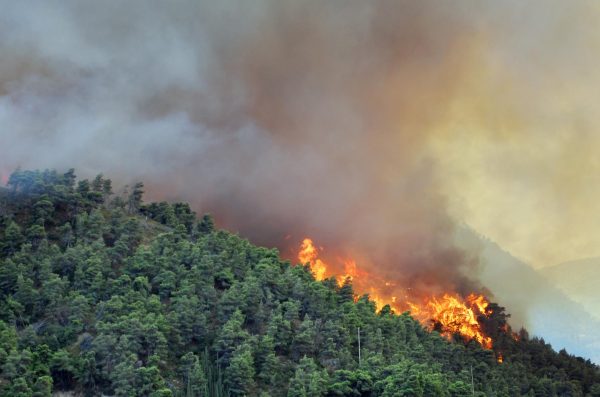SINGAPORE, 4 October 2019: Smog made the headlines last week as residents in Bangkok donned face masks to protect themselves against what newspapers called toxic haze, mostly self-inflicted by a city consumed by dust and vehicle emissions.
Just weeks earlier, the F1 Grand Prix in Singapore faced the possibility of a last-minute cancellation of the iconic race and the hugely popular concerts.
Smog seriously reduced visibility in the otherwise squeaky clean Singapore. Originating in Indonesia, the smog was caused by greedy palm oil plantation owners who deliberately torched forests and peatland.

Smog annually curses North Thailand, Myanmar and Laos damaging health, the economy and tourism. Over the years, attempts to end forest fires has been a miserable failure on the part of governments.
But if you take a closer look at air quality index figures around the region, there are few places in Asia that can guarantee clean air consistently year-round
Even in Hong Kong where 400 rounds of rubber bullets and more than 1,000 canisters of tear gas were fired at demonstrators last week, one publication bemoaned the health crisis caused by air pollution.
We have poisoned our planet, and the voice of reason and the call for change are coming from young people rather than government leaders
Greta Thunberg, a 16-year old Swedish student, leads a global ‘Friday for Future’ campaign that started just a year ago with a solo strike at the gates of the Swedish Parliament. On 23 September this year, she berated world leaders at the UN Climate Summit in New York saying her generation would not forgive them for their failure to act.
Do we have young voices in the global travel industry in Southeast Asia fearlessly committed to saving the planet and ending the pollution caused by tourism?
I thought I would find out, with emails sent to associations asking them if they would lead a public campaign to end the smog and forest fires in ASEAN. Most of them didn’t bother to answer. It’s a proven technique when asked a question by media other than the BBC and CNN to just ignore it. They postulate that silence terminates questions. It’s particularly effective against the region’s toothless travel trade media.
A couple of associations did reply. One famous association that relies on governments in ASEAN for a solid portion of its annual revenue said it was engaged in a dialogue with governments through private conversations.
A laudable strategy that understands Asian governments are reluctant to accept counsel from outsiders, especially non-government organisations. But there is a definite downside to the strategy of shaping change through private conversations. Only the two parties know the tone or content discussed. There is no measure of how passionately the association presented the case for ending annual forest fires. Was it an “in passing” comment, or the top item on a list of crucial challenges?
However, ASEANTA a travel association that in recent years lacked direction responded to my email pointing to a statement released 27 September that called on ASEAN governments to urgently tackle the region-wide smog crisis. ASEANTA had nailed its colours to the mast.
The statement read: ” ASEAN Tourism Association (ASEANTA) has expressed its extreme concern over the effects of haze and its long-term implications to regional tourism if much stricter measures are not taken to ensure this does not recur.”
Signed by ASEANTA President Mingkwan Metmowlee the statement continued: “We express our extreme concern over the continuous trans-boundary haze situation caused by open burning in Sumatera and Kalimantan. This problem has become a recurring event despite an ASEAN agreement to prevent trans-boundary haze signed in 2002.
“We encourage the National Tourism Organisations (NTOs) of ASEAN member states to take joint proactive action to minimise the negative consequences, for the tourism image of Southeast Asia…We condemn such irresponsible parties’ (for their) acts of open burning and urge the authorities concerned to take bolder measures to fight such reckless and blatant disregard for the law.
“Preventive measures in line with earlier agreed commitments should be encouraged to avoid this situation recurring in the future”, the statement concluded.
The popular response to the ASEANTA statement will probably go something like “so what, ASEAN leaders do nothing, they will not listen or respond so it is a waste of time.”
I am sure that when Greta Thunberg first sat on the pavement outside the Swedish Parliament on a chilly Friday morning in August 2018, she heard the same comments and feared she would also be ignored and ridiculed.
Hats off to ASEANTA. It should be praised for taking a stand. But now the big the challenge is to find young voices in the travel industry to kick-start “Friday for Future” or “Youth Strike 4 Climate” campaigns in ASEAN. They can accelerate change that will save our planet and in our neck of the woods stop the plundering and burning of forests across the region.







Why don’t we urge and submit our concerns to Thailand’s PM as he is the Chairman of ASEAN to ensure this big problem is on the big issue agenda for the ASEAN member countries to really pay attention and cooperative seriously to solve this problem successfully.